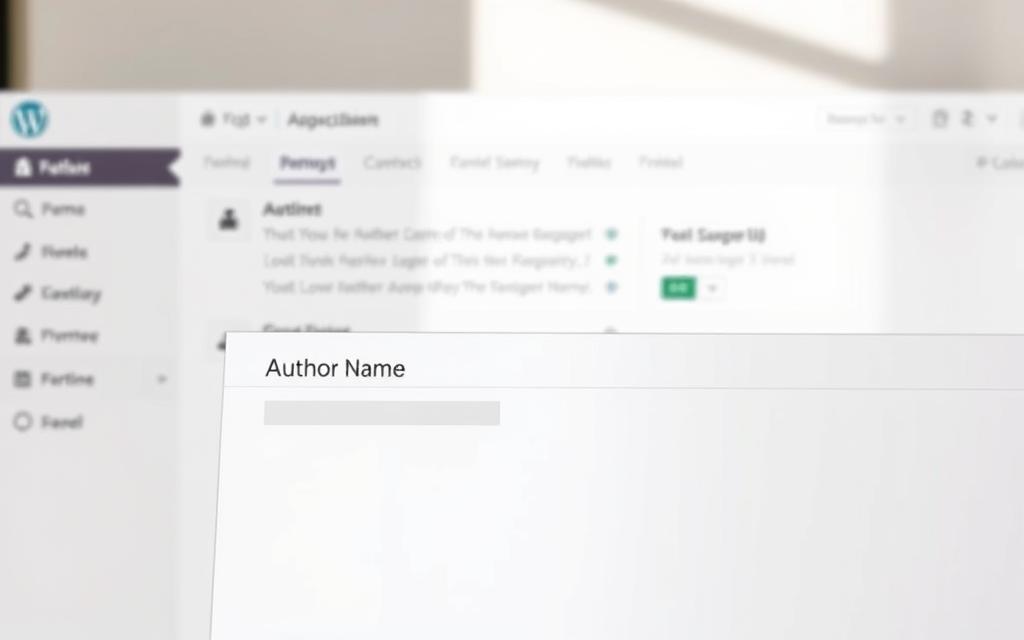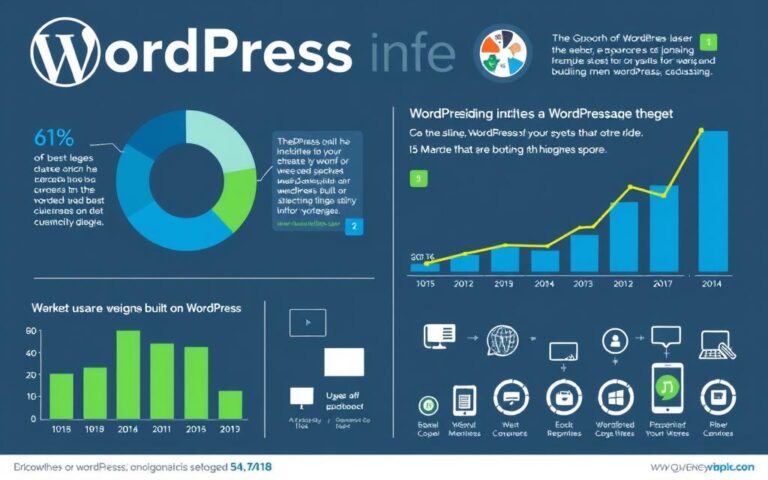Clean Up Your WordPress Posts: How to Remove the Author Name
Many websites and blogs prefer a clean, unified look without individual author credits. Whether you run a multi-contributor blog or publish team-based content, hiding creator details can enhance professionalism.
WordPress automatically displays author metadata by default. This can clash with anonymous publishing or collaborative workflows. Manual adjustments are needed since the platform lacks built-in removal options.
Three effective solutions exist: plugins, CSS tweaks, or theme edits. Each method balances simplicity with control. For example, WPBeginner recommends CSS for quick results without plugin overload.
Modern website owners also consider SEO impacts. Schema markup updates ensure consistency when modifying post details. Alternatives like generic team names offer partial anonymity while maintaining credibility.
Why Remove the Author Name from WordPress Posts?
Crediting individual creators isn’t always ideal for collaborative content projects. Team-written articles often need neutral attribution to fairly represent all contributors. This prevents credit disputes while maintaining focus on the website‘s collective expertise.
Multi-contributor platforms benefit from unified branding. Readers associate posts with the publication rather than specific writers. WPBeginner demonstrates this effectively by using editorial team credits instead of individual bylines.
Privacy concerns also justify the need to hide author details. Legal or healthcare blog posts often require anonymity. Controversial product reviews similarly benefit from neutral presentation, as noted in industry case studies.
Guest contributors sometimes prefer pseudonyms or complete omission. Temporary author transitions also create situations where metadata removal becomes necessary. These scenarios maintain professionalism while protecting participant identities.
Strategic author management can enhance SEO performance. Unified profiles prevent diluted search rankings across multiple creator pages. When implemented correctly, this approach strengthens domain authority without sacrificing content credibility.
How to Remove Author Name from WordPress Posts
Maintaining a consistent brand voice often requires adjusting post metadata. WordPress offers multiple approaches to achieve this, each with varying levels of technical complexity.

Plugin Solutions for Streamlined Management
Specialized tools like WP Meta & Date Remover simplify the process. These solutions automatically handle both frontend and backend adjustments without manual coding.
- Install via WordPress dashboard > Plugins > Add New
- Activate and configure visibility settings
- Test changes across different post types
Popular options include WP User Manager and Author Remover. These plugins maintain compatibility with most themes while offering granular control.
CSS Customization Techniques
For targeted adjustments, CSS provides precise control over displayed elements. The process begins with identifying the relevant class through browser inspection tools.
| Element | Common CSS Class | Sample Code |
|---|---|---|
| Author Name | .author-name | .author-name {display:none;} |
| Metadata Container | .entry-meta | .entry-meta .byline {visibility:hidden;} |
Implement these snippets in Appearance > Customize > Additional CSS. Always verify mobile responsiveness after making changes.
Theme File Modifications
Advanced users can edit template files directly. This method offers permanent solutions but requires technical precautions.
- Create a child theme to preserve modifications
- Locate single.php or content.php in theme files
- Modify functions like twentynineteen_posted_by()
- Test changes thoroughly before deployment
For additional WordPress customization tips, explore our guide on hiding post metadata elements.
Always backup your site before implementing structural changes. Consider the tradeoffs between plugin convenience and manual control based on your technical comfort level.
Remove Author Name from Schema Markup
Schema markup plays a crucial role in how search engines interpret your content. Proper implementation ensures accurate rich snippets while maintaining SEO consistency. When hiding creator details, updating structured data prevents conflicting signals.
Modifying Schema with Rank Math
Rank Math requires meta adjustments via theme files. Add this filter to functions.php to exclude author data:
add_filter("rank_math/snippet/rich_snippet_{$schema_type}_entity", function($entity) {
if (isset($entity['author'])) unset($entity['author']);
return $entity;
});Test changes using Google’s Structured Data Tool. This preserves website credibility without disrupting other markup.
All in One SEO Plugin Method
For non-coders, disable author archives in All in One SEO:
- Navigate to Feature Manager > Author SEO
- Toggle “Disable Author Archives”
- Set 301 redirects for existing author pages
This approach also blocks search engines from indexing outdated profiles.
E-E-A-T and JSON-LD Validation
Google’s E-E-A-T guidelines still apply when omitting author details. Use generic team names or organizational markup to maintain expertise signals. Validate JSON-LD with:
- Schema.org testing tools
- Yoast SEO’s API for wpseo_schema_needs_author filter
- Manual checks in Google Search Console
Note: Rich snippets may temporarily drop during transitions. Monitor performance for 14 days post-update.
Alternatives to Removing Author Names
Not all publishing scenarios require complete anonymity—sometimes partial solutions work better. Strategic approaches maintain credibility while offering flexibility for team-based content.

Implementing a Generic Author Identity
Creating a shared user profile unifies attribution across multiple contributors. The “Editorial Team” approach works well for consistent branding:
- Add new contributor account with Editor-level permissions
- Set display name as “Content Team” or publication title
- Update existing posts via Quick Edit in bulk
This method preserves the blog post metadata structure while hiding individual identities. Email notifications can route to a shared inbox for workflow management.
Visual Attribution Through Avatars
The PublishPress authors plugin transforms how teams present creator information. Instead of text names, it shows:
- Custom branded icons matching your style guide
- Responsive Gravatar integration with fallback options
- Accessible alt text like “Company Expert” for screen readers
“Avatars increased our click-through rate by 18% while maintaining team anonymity,” reports a tech publisher case study.
Compared to full removal, these alternatives better support:
- Internal contributor tracking
- Reader engagement through visual elements
- SEO-friendly structured data patterns
Conclusion
Choosing the right approach depends on technical expertise and project goals. Plugins offer simplicity, while CSS or theme edits provide deeper customization. Always verify schema markup completeness to avoid SEO gaps.
Test changes on staging environments first. Monitor for conflicts after theme updates. Regular schema validation ensures search engines interpret your website correctly.
For complex implementations, consult a developer. Tools like WP Meta Remover simplify the process, but manual adjustments may be needed for unique cases. Share this guide to help others streamline their posts effectively.
FAQ
Why should I hide the author name on my WordPress posts?
Removing the author name creates a cleaner look, especially for multi-author blogs or sites where individual credit isn’t necessary. It also helps maintain consistency in branding and reduces distractions for readers.
What’s the easiest way to remove the author name without coding?
Plugins like Hide Author or WP Meta and Date Remover provide a simple solution. Install, activate, and configure the settings to hide author details across your site.
Can I use CSS to hide the author name from posts?
Yes. Add custom CSS like .entry-author { display: none; } via Appearance > Customize > Additional CSS in your WordPress dashboard. This method is quick but may require adjustments based on your theme.
Will removing the author name affect SEO?
No, but ensure schema markup doesn’t display outdated author data. Use plugins like Rank Math or Yoast SEO to update structured data settings if needed.
What if I want to show contributors without highlighting individual names?
Replace specific names with a generic label (e.g., “Admin” or “Editor”) in the User Profile section. Alternatively, display author avatars using widgets or shortcodes for a visual touch.
Is editing theme files safe for removing author names?
Yes, but always back up your site first. Locate files like single.php or content.php in your theme folder and delete or comment out author-related code. Consider using a child theme to preserve changes during updates.














